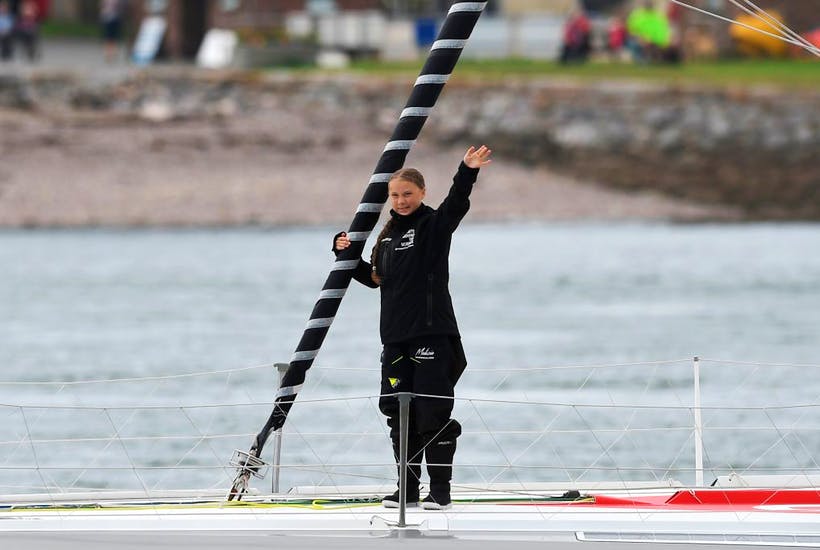Greta Thunberg’s yacht, the Malizia II, has delivered her to the UN climate conference in New York – two weeks after she first set sail from Europe. The transatlantic trip was a masterstroke in PR, with every major media outlet broadcasting updates on the journey and detailing the hardships Thunberg has endured – no toilet, no shower and sea sickness.
The accusations of hypocrisy have also rolled in thick and fast, criticizing everything from the plastic water bottles used by the crew, to the long-haul flights taken by the sailors responsible for returning the yacht to Europe.
Thunberg has discovered the perils of pursuing such an ideologically pure cause: if you preach an uncompromising message, your audience will judge you on similarly uncompromising terms, even as you attempt to live out your ideals. Those with religious leanings have known this for centuries: if you don’t practice what you preach then your message quickly falters. Indeed, sometimes I wonder whether the appeal of climate change activism comes from its ability to fill the ideological void left by the decline of religion in the post-Christian West. Greta’s moral authority about the future of civilization and how we should and shouldn’t behave as individuals carries all the personal challenge and sense of fire and brimstone as the message of the puritans.
What’s clear is that Thunberg’s international profile, and her need to travel to maintain it, is going to cause her more problems going forward; she’s part of a generation of globalists whose causes are international in scope and yet her message forbids her from joining the jet-setting elite. Thunberg and her family may argue that Greta’s presence at these conferences will inspire others to become more climate-friendly but the fact is that without Thunberg’s celebrity, young people can’t simply charter a private yacht across the Atlantic when they want to go to America. It’s easy to see how Thunberg’s presence at these climate conferences could start to rile her fan base whose climate activism, if genuine, will come at more of a cost than Thunberg’s.
The ease and affordability of air travel over the last 50 years has shaped the very agenda that Thunberg has adopted as her own: the idea that people across the world must unite to combat climate change would never have come about were it not for Westerners’ ability to cross borders, see the world and forge a sense of being part of a global community as opposed to a national one. She owes the very existence of her message to the technology she is speaking out against.
Questions will also be raised as to why Thunberg needs to be at these conferences in person. The internet has done as much to break down our sense of borders as commercial flights did before it. Thunberg doesn’t need to attend conferences to disseminate her views to the world; she can simply upload a video to YouTube from her own living room. But for many climate change activists, it is the appeal of being seen to do good, and to mingle with others of a similar mindset that drives their attendance at these events. It hasn’t stopped many a Hollywood celebrity trying to preach to the masses about the evils of carbon and it probably won’t stop Greta. The rise of the carbon off-setting industry has given the wealthy exactly what they are after: a morally pure cause that can be realized through hard cash rather than lifestyle change. Thunberg has already had to dip her toe into these murky waters, when the crew of her yacht had to offset the carbon footprint of their flights through tree planting.
Thunberg is already struggling to match the purity of her message with her increasingly internationalist lifestyle. Sailing the Atlantic to attend a UN conference has given her a taste of global glamour. Time will tell whether she’s able to turn down further opportunities to protect the purity of her cause or whether the allure of speaking to enraptured audiences all over the world will prove too tempting to resist.
This article was originally published on The Spectator‘s UK website.

























